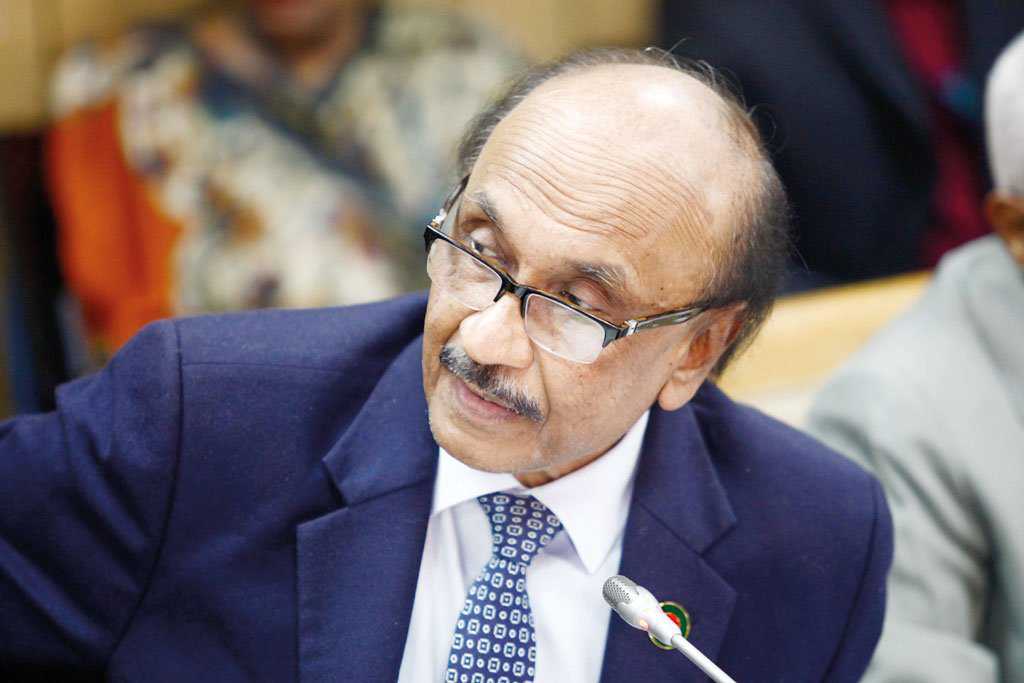Loan rescheduling rises by 21.39%

File photo of Bangladesh Bank Governor Fazle Kabir Mehedi Hasan
Loan rescheduling by banks rose by 21.39% to Tk23,210 crore in 2018, compared to the previous year, according to the Financial Stability Report-2018.
The banks had rescheduled Tk19,120 crore defaulted loans in 2017.
There may be several reasons for this increased amount of rescheduled loans, such as over leverage, slowdown of external demand for export-oriented products, poor due diligence, and negligence in compliance of risk management practices, Bangladesh Bank observes in the stability report.
According to the report, loans rescheduled in industrial sector (regardless of the size of the industries) were 26.8%.
RMG and textile sector accounted for 21.2% of the industrial rescheduled loans.
Among other categories, commercial loans, other non-specified sectors (including ship building and breaking, transportation and communication and consumer credit, etc) and foreign trade (export credit, import credit and loans against trust receipts) shared 8.8%, 12.7% and 9.4% of the total rescheduled loans respectively.
The rescheduled loan ratio (rescheduled loan/total loan outstanding) of industrial sector was the highest among all sectors, with 20.0% followed by RMG, construction and agricultural sectors with 15.2%, 12.2% and 11.5% respectively.
The central bank had earlier allowed banks to reschedule their short-term agricultural credit with relaxed down payments. The rates of rescheduled loans in the remaining sectors were below 10%.
There are some sectors including shipbuilding, which have real problems, and the banks have rescheduled loans defaulted in these sectors, said Ahsan H Mansur, executive director of Policy Research Institute.
He mentioned higher interest rate in 2018 as another reason for loan rescheduling and observed that major defaulters were going scot free using the opportunity of loan rescheduling.
He said that many defaulters got their loans rescheduled just before the election last year in order to be able to compete in the parliamentary elections.
At the end of September 2018, banks non-performing loan stood at Tk99,370 crore — the highest in Bangladesh's history. It came down to Tk93,911 crore towards the end of the year.
Bangladesh Bank Governor Fazle Kabir, while launching the Financial Stability Report for 2018 as chief guest on Tuesday urged banks to reduce bad loans.
Besides, he asked the chief executives of banks to bring down the lending and deposit rate to single digit to continue the growth of the country.
The report was launched at Jahangir Alam conference room of Bangladesh Bank.
Senior officials of Bangladesh Bank, chief executives of banks and financial institutions and representatives of the Bangladesh Securities and Exchange Commission, Insurance Development and Regulatory Authority and Micro-credit Regulatory Authority were present.
According to Financial Stability Report-2018, Bangladesh's overall macro- economy was stable during the fiscal year 2017-18.
The GDP growth rate increased to 7.9%, which was 7.3% in the previous fiscal year. The annual average inflation was 5.5% and the foreign exchange reserve stood at $32 billion in December, 2018.
Banking sector's assets increased by 11.5% at the end of 2018. Loans and advance 14.1% and deposits increased by 10.5%. The proportion of capital and risk-based assets in banking sector has decreased slightly to 10.5%, which is more than the necessary minimum rate of 10%, according to the report.
Source: https://www.dhakatribune.com
Previous Story
- ComBank slashes rates for ‘Biz Loans’ to encourage...
- Stocks soar amid budget expectations
- DSEX soars as banks’ stock exposure limit hiked
- Stocks drop for second week on liquidity crisis
- Most banks see EPS rise in first quarter
- SoCBs asked to focus on SME lending
- Trade deficit falls by 9.24% in nine months
- Bangladesh set to emerge as ‘contributor’ to world...